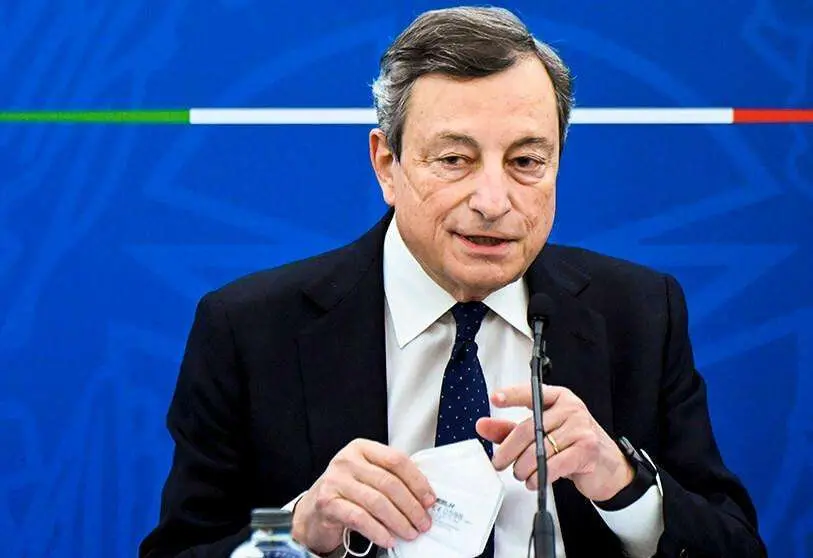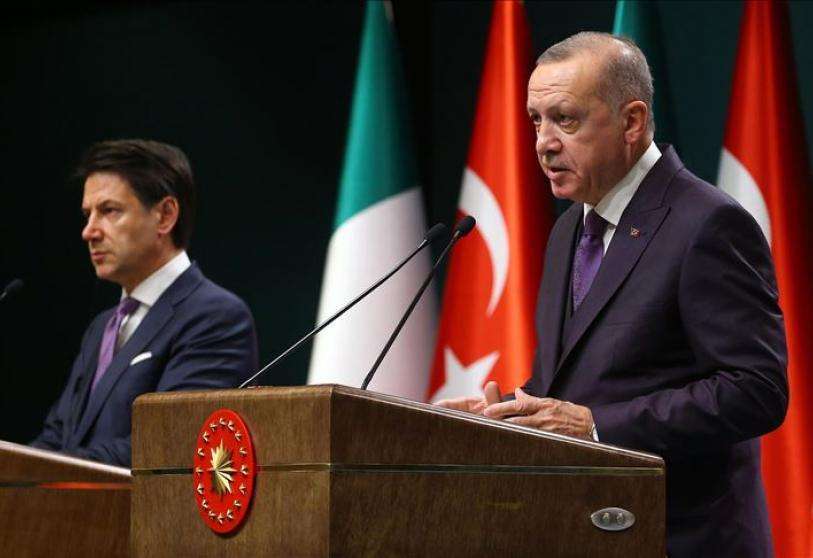Mario Draghi calls Tayyip Erdogan a "dictator"

In the midst of the EU's rapprochement with Turkey, Mario Draghi has called Erdogan a "dictator". "I absolutely do not agree with Erdogan's behaviour towards the President of the European Commission. I think it was not appropriate. I very much regretted the humiliation he had to suffer," Draghi told a press conference in Rome. The Italian president and former president of the European Central Bank was referring to Von der Leyen's snub during the meeting in Ankara with Erdogan. The Commission President was relegated to the background, without her own chair in the centre, as was Charles Michel. This gesture was widely criticised by European politicians. "As I have already said in other press conferences, we have to consider cooperation with these dictators, let's call them what they are, however, we have to be frank in expressing different points of view," Draghi added.
Ankara has not taken kindly to these harsh statements. The Turkish foreign ministry has summoned the Italian ambassador, Massimo Gaiani, to discuss what happened, according to the Turkish media Hurriyet. Mevlüt Çavuşoğlu, the foreign minister, has criticised Draghi's words. "We strongly condemn the unacceptable populist rhetoric of the Italian prime minister and his unpleasant and unrelenting statements about our elected president," the minister said on his Twitter account.
This development further worsens relations between Turkey and the EU, despite attempts from Brussels to forge a rapprochement with its Eurasian partner. However, Erdogan's authoritarian drift does not help these relations to be cordial, as it is necessary for Europe to criticise certain undemocratic aspects. In recent weeks, the Turkish president has taken decisions that have provoked criticism from abroad for their authoritarian character. Firstly, the dismissal of the head of the Turkish Central Bank, Naci Agbal, due to disagreements, once again demonstrates the lack of independence of the institution. The multiple changes at the Central Bank are detrimental to Turkey's weak economy, and in addition to reproaches from international investors, Turkish citizens themselves criticise the actions of their president.

Erdogan's authoritarian drift continues in the social sphere, as he recently announced his withdrawal from the Istanbul Convention, the pact against male violence. Turkey was the first country to ratify the agreement in 2012, although feminist groups in the country believe that it has never been implemented. According to the NGO Bianet, at least 284 women were murdered in Turkey in 2020. Shortly after the news broke, thousands of Turkish women took to the streets to protest against Erdogan's decision. "Women want justice", "Long live the Istanbul Convention" and "Tayyip resign" were the most frequently chanted slogans among the demonstrators. The European Union also deplored the Turkish government's decision. "We urge Turkey to reverse its decision because it is the first binding international instrument to combat violence against women", declared Von der Leyen at the recent meeting with Erdogan in Ankara.
In politics he continues his crusade against the Kurds. A few weeks ago, the HDP party announced that its pro-Kurdish MP Omer Faruk Gergerlioglu had been arrested. Gergelioglu has been active in denouncing human rights violations in Turkey. The Turkish Public Prosecutor's Office has also filed a lawsuit to dissolve the political party, as the government accuses it of having links with the Kurdistan Workers' Party (PKK). This decision, according to US State Department spokesman Ned Price, "further undermines democracy in Turkey and denies millions of citizens the representation they have chosen". So it is not only the EU that is questioning Turkey's "democracy".

With these statements by Mario Draghi, Italy joins the group of European countries at loggerheads with Turkey. Relations between Cyprus and Greece are also strained by Erdogan's expansion in the Mediterranean. As well as worsening relations with Europe, these maritime operations have cost him economic sanctions from Brussels, yet Erdogan claims that "any decision on sanctions against Turkey does not worry him". His citizens, however, are certainly concerned.










